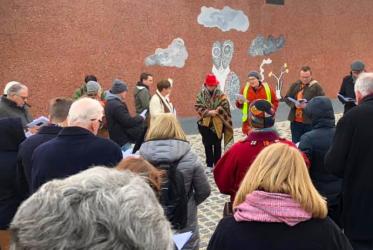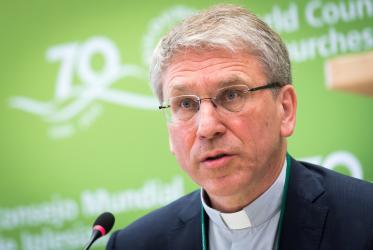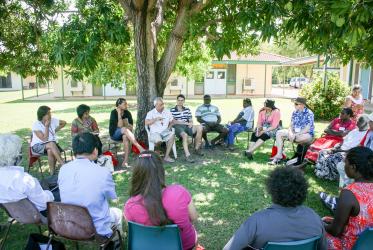Displaying 21 - 40 of 66
WCC condemns massacre of farmers in Philippines
12 April 2019
Le COE condamne le massacre de fermiers aux Philippines
12 April 2019
All pilgrim routes lead to COP24
11 December 2018
#WCC70: A story of how we meet together
02 February 2018
#WCC70: Un récit de la manière dont nous nous réunissons
02 February 2018
A voice for peace from Down Under
10 July 2017
“Overcoming economic injustice” vision of WCC’s Athena Peralta
23 February 2017
Indigenous spirituality: can it transform injustice into justice?
01 September 2016
La spiritualité autochtone peut-elle transformer l’injustice en justice?
01 September 2016









